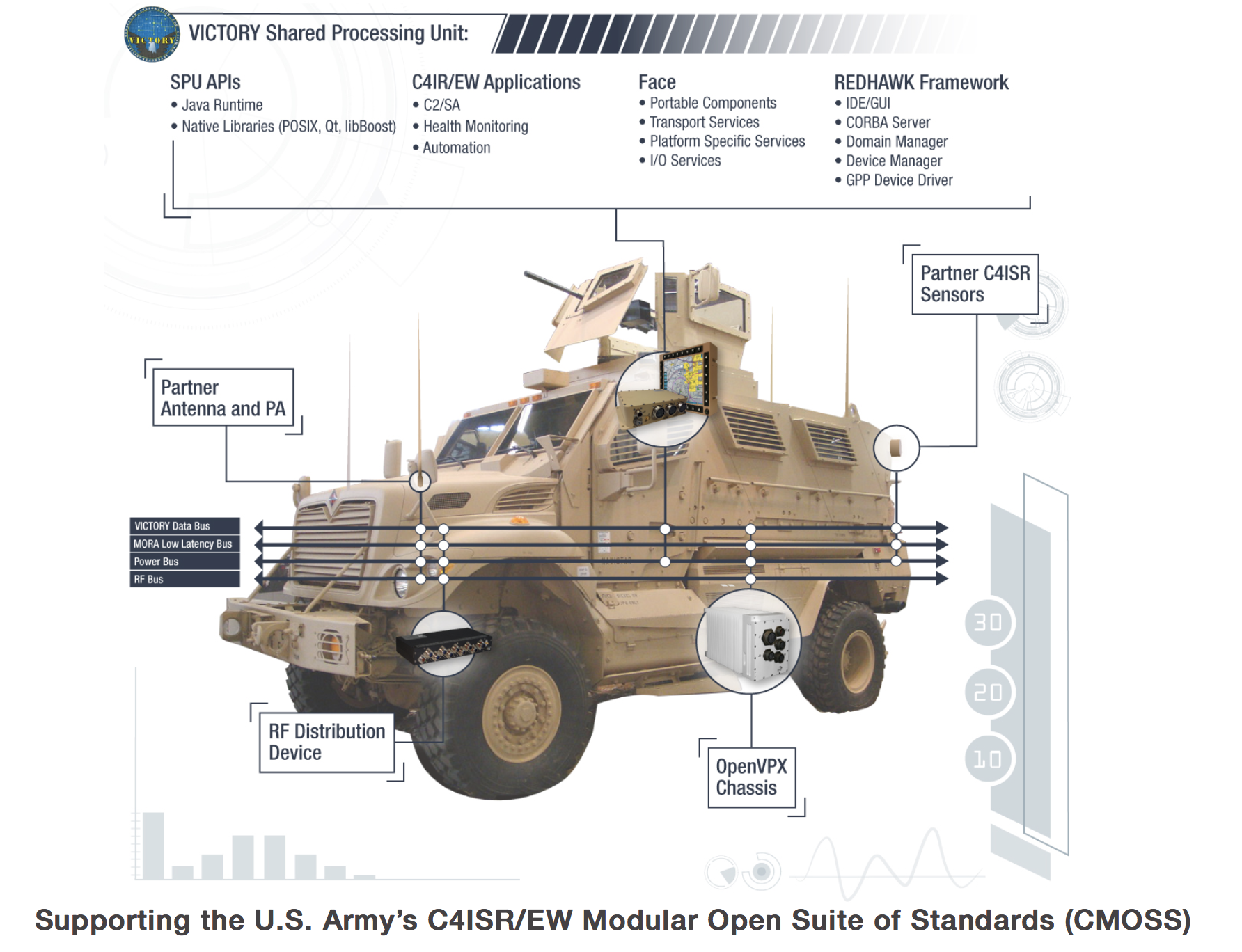Curtiss-Wright’s Defense Solutions division announced that it will highlight its family of commercial-off-the-shelf (COTS)-based modules and LRU solutions designed for system integrators seeking to rapidly and cost-effectively deploy Assured Position, Navigation and Timing (A-PNT) services at the 2018 Joint Navigation Conference, July 9-11 (Booth #109), the largest U.S. military Positioning, Navigation and Timing (PNT) conference of the year with joint service and government participation.
Designed for ground vehicles operating in GPS/GNSS-denied environments, Curtiss-Wright’s current PNT solutions include the DBH-672 Digital Beachhead and DBH-670 Digital Beachhead Rugged Switch, Vehicle Processor and Assured PNT Systems. Curtiss-Wright recently announced that it is also developing the new VPX3-673 A-PNT card, a high performance single board computer. The rugged VPX3-673 will speed and ease the integration of Complementary PNT sources on ground vehicles. The VPX3-673 A-PNT card will speed and ease the integration of Complementary PNT sources on ground vehicles, delivering state-of-the-art technology services, including a GPS/GNSS Receiver, Chip Scale Atomic Clock (CSAC), and an on-board Inertial Measurement Unit (IMU). This innovative size, weight and power (SWaP) optimized module will eliminate the need for multiple in-platform boxes or the use of “bolt-on” technologies in order to field new Navigation Warfare (NAVWAR) capabilities.
Curtiss-Wright has also recently announced the DBH-672A Digital Beachhead, an enhanced version of its DBH-672 Digital Beachhead. The new DBH-672A Digital Beachhead, a fully integrated rugged LRU, adds support for a GPS/GNSS Receiver, CSAC, and IMU to the earlier model’s built-in infrastructure switch and shared processor unit features.
“Our COTS-based open architecture A-PNT solutions feature state-of-the-art technology capabilities that enable the detection of threats to GPS/GNSS while delivering trusted distributed PNT data to in-vehicle clients,” said Lynn Bamford, Senior Vice President and General Manager, Defense Solutions division in a press release today. “Building on the success of our Digital Beachhead VICTORY-compliant switches, we are proud to lead the industry in delivering COTS-based solutions that reduce time, complexity, and cost to integrate the software and hardware elements required by the warfighter to effectively conduct NAVWAR.”
A-PNT from Curtiss-Wright
Curtiss-Wright’s A-PNT solutions are designed to provide ground vehicles with access to trusted PNT information while operating in conditions with limited, impeded, or denied GPS/GNSS. Based on open-architecture, COTS technology, Curtiss-Wright’s 3U OpenVPX module and fully integrated rugged LRU A-PNT solutions are cost effective, simple to configure, and rapidly deployable. As well, these A-PNT products are SWaP-optimized for both combat and tactical wheeled vehicle platforms to ease the integration of software and hardware elements required by the warfighter to effectively conduct operations in a GPS/GNSS-denied environment.
By distributing the best available PNT data simultaneously to multiple platform applications that require GPS/GNSS data, Curtiss-Wright A-PNT solutions eliminate the need for a ground vehicle to support multiple GPS/GNSS receivers or antennas. Curtiss-Wright’s A-PNT solutions meet legacy GPS/GNSS distribution requirements and are compatible with standard DAGR accessories, such as RA-1/RA-2 antennas, Crypto Variable Fill cables, and all serial interface cables. They are designed to support both legacy and future technology, including interfacing to mission equipment, as well as Anti-Jam Antenna and tactical communications.
CMOSS Support
Curtiss-Wright’s infrastructure switch and A-PNT solutions are designed to support the new C4ISR/EW Modular Open Suite of Standards (CMOSS) defined by the US Army Material Command (Research, Development and Engineering Command) Communications-Electronics Center (CERDEC). Using CMOSS, system integrators will employ true industry open standards to develop rugged COTS solutions to meet the Army’s critical requirements. The widespread adoption of CMOSS by system integrators in “Five Eyes” and other NATO nations, will help move the implementation of C4ISR capabilities away from the use of costly and complex “stovepiped” separate boxes on individual platforms. The use of true open standards will make it easier and more cost-effective to upgrade capabilities or keep pace with commercial technology due to complex integration challenges, lack of competition, and proprietary interfaces. In many cases stovepiped systems consume more SWaP than is currently available, thus necessitating expensive and time-consuming vehicle modifications.
This internationally supported suite of standards enables the reduction of C4ISR system size, weight and power (SWaP) and ensures commonality across multiple platforms by enabling the sharing of hardware and software components. Curtiss-Wright is well positioned to support these efforts with multiple existing product lines already designed in compliance with CMOSS standards, as well as new technologies currently in development, that align with its objectives, including COTS-based rugged single board computers, Ethernet switches, TrustedCOTS™ trusted computing approaches, radial clock modules, data storage systems and power supplies, according to the company.
CMOSS Standards:
The open standards currently included in CMOSS include:
- Vehicular Integration for C4ISR/EW Interoperability (VICTORY): provides network based interoperability using to share services such as Time and Position.
- OpenVPX: a hardware form factor for fielding capabilities as cards in a common chassis
- Modular Open RF Architecture (MORA): drives functional decomposition to share resources such as antennas and amplifiers
- Software frameworks: includes REDHAWK, Software Communications Architecture (SCA), and Future Airborne Capability Environment (FACE) to enable software portability
Availability
Limited quantities of early access units (EAU) of the new VPX3-673 module and DBH-672A Digital Beachhead unit will be available to qualified customers. Please contact David Jedynak, CTO and Director, Curtiss-Wright A-PNT Program Office, djedynak@curtisswright.com.
The 2018 JNC runs July 9-12 in Long Beach, California.





